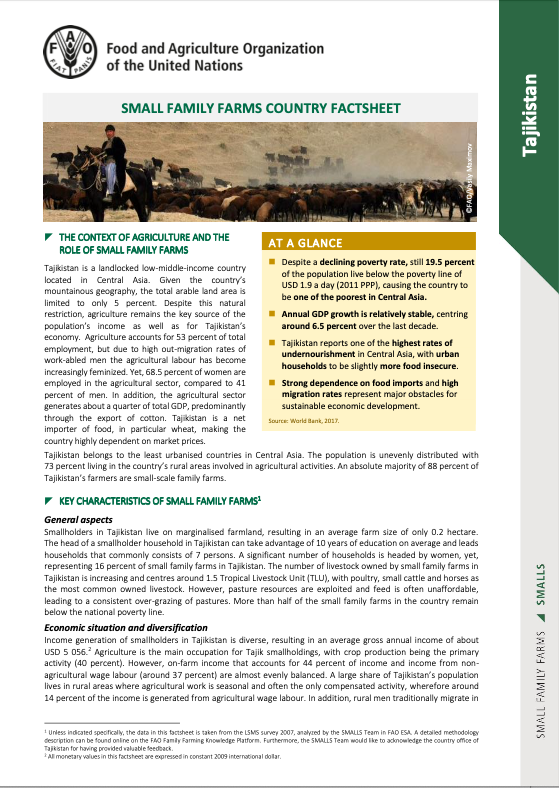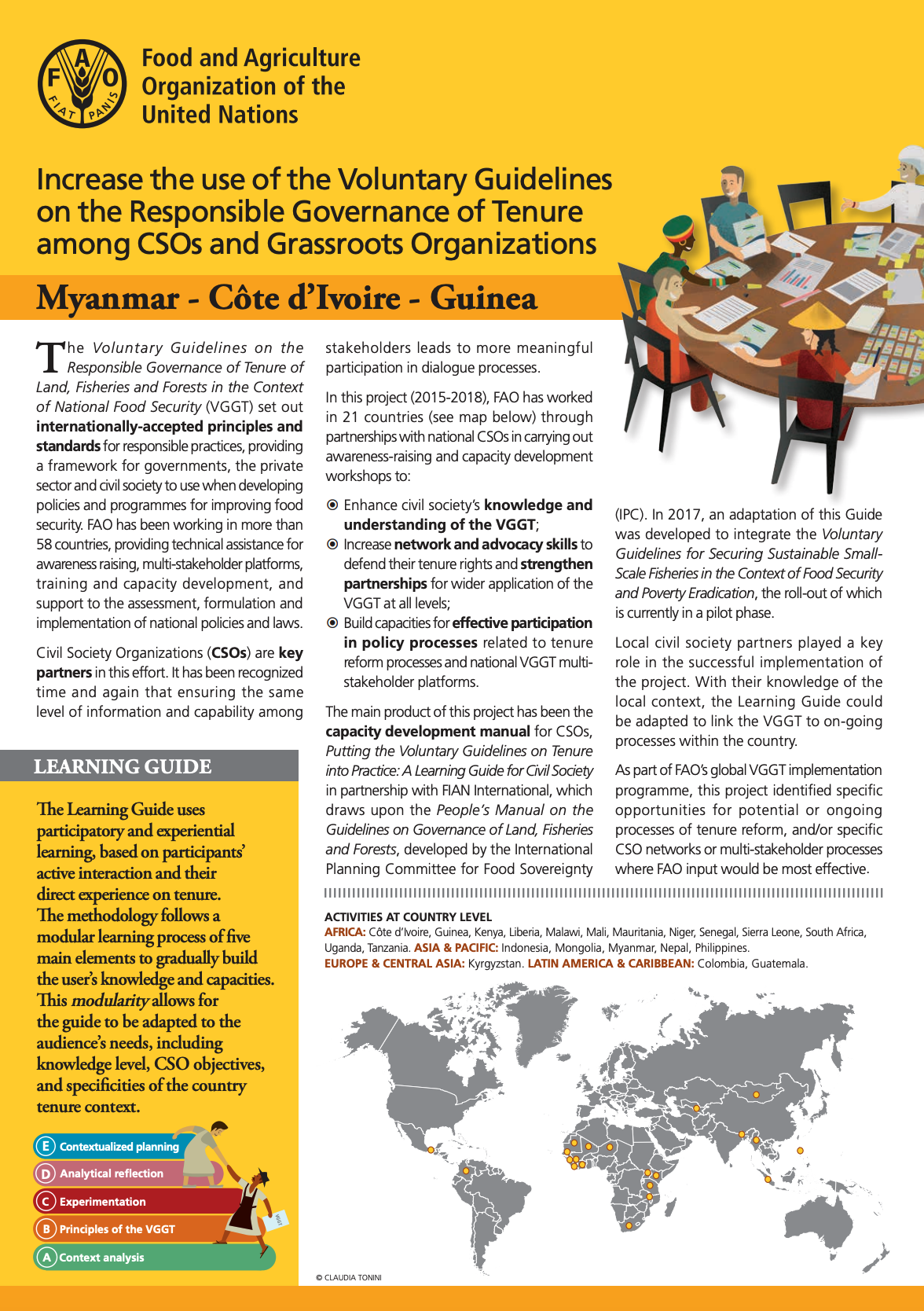Focal point
Location
The Food and Agriculture Organization of the United Nations leads international efforts to defeat hunger. Serving both developed and developing countries, FAO acts as a neutral forum where all nations meet as equals to negotiate agreements and debate policy. FAO is also a source of knowledge and information. We help developing countries and countries in transition modernize and improve agriculture, forestry and fisheries practices and ensure good nutrition for all. Since our founding in 1945, we have focused special attention on developing rural areas, home to 70 percent of the world's poor and hungry people.
Members:
Resources
Displaying 196 - 200 of 5074Globally Important Agricultural Heritage Systems (GIAHS). Combining agricultural biodiversity, resilient ecosystems, traditional farming practices and cultural identity
For centuries, farmers, herders, fishers and foresters have developed diverse and locally adapted agricultural systems managed with time tested, ingenious techniques. These practices have resulted in a vital combination of social, cultural, ecological and economic services to humankind. “Globally Important Agricultural Heritage Systems” (GIAHS) are outstanding landscapes of aesthetic beauty that combine agricultural biodiversity, resilient ecosystems and a valuable cultural heritage.
Natural Resources Management and the Environment in Small Island Developing States (SIDS)
This policy paper focuses on the environmental challenges of sustainable development issues with particular attention to natural resource management, environment and climate change in the food and agriculture sector (including crops, livestock, fisheries and forestry). FAO’s agriculture, fisheries, forestry and technical assistance programmes provide considerable resources to assist member countries promote conservation, sustainable use and management of natural resources and to reduce the risks associated with climate extremes as well as resilience building.
Nature-Based Solutions for agricultural water management and food security
Agriculture influences and shapes the world’s ecosystems, but not always in a positive way. More than 2.5 billion people are globally involved as stewards of land and water ecosystems that constitute the natural resource base for feeding the current and future world population. Yet, conventional agronomic interventions based on ‘hard’ agricultural engineering compromise various eco-services that are required for sustainable agricultural development.
Small Family Farms Country Factsheet: Tajikistan
Although only 5 percent of Tajikistan's land area is farmable due to the country's mountainous geography, agriculture accounts for 53 percent of total employment. Among those households that engage in agriculture, almost 90 percent can be classified as small family farms. With 0.2 hectares on average, Tajikistan's smallholders operate on very marginalized farmland which makes it less surprising that on-farm income and income from non-agricultural wages are almost evenly balanced.
Increase the use of the Voluntary Guidelines on the Responsible Governance of Tenure among CSOs and Grassroots Organizations - Myanmar - Côte d’Ivoire - Guinea
The Voluntary Guidelines on the Responsible Governance of Tenure of Land, Fisheries and Forests in the Context of National Food Security (VGGT) set out internationally-accepted principles and standards for responsible practices, providing a framework for governments, the private sector and civil society to use when developing policies and programmes for improving food security.











